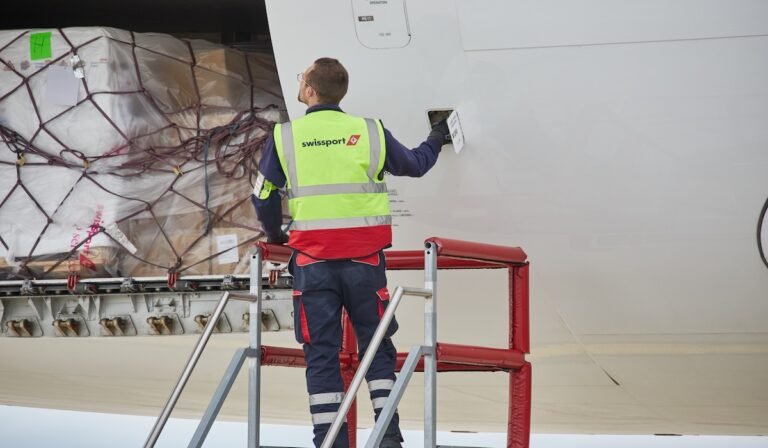Global air cargo markets have experienced a phase of normalisation after a very difficult 2023. Volumes in 2024 are still below the records of the Covid era, but the industry is seeing a market-wide return to a steady path of expansion.
e-commerce freight, in particular, is going from strength to strength, with many fast-growing players disrupting the industry, not only in terms of sheer volume but also in terms of industry composition and customer needs.
Another trend that the industry is focusing on is pharma: both volumes and the number of pharma trade lanes have increased, making pharma a great opportunity to showcase advanced handling capabilities. Both pharma and e-commerce stand as two core pillars of the Swissport cargo strategy, allowing the company to secure a market-leading position.
“We see across our network that belly cargo capacity has fully recovered to pre-pandemic levels. While Covid saw a strong focus on freighter traffic, the market has transitioned back to using of a combination of belly cargo and freighters,” Dirk Goovaerts, Global Cargo Chair of Swissport, stated.
“This can be challenging for many stakeholders – but having jointly built back, we now have the chance to focus on where we want to grow as an industry. Our approach has changed: next to our most valued carrier customers, Swissport is ready to support the entire air cargo ecosystem.
“It is an exciting time to be in the air cargo business, and Swissport is well positioned to provide high quality handling services and specialised handling products throughout our network.”
Opportunity abounds
Freight forwarders remain an integral part of global logistics. Over the last few years, Swissport has expanded its reach considerably. The company continues to work in close partnership with carriers.
“I don’t think the role of forwarders has changed – if anything, we are rethinking Swissport’s role,” Goovaerts explained.
“While we remain focused on providing excellent handling services to our carrier customers, we have to realise that we are serving the entire air cargo supply chain.
“Our competitors remain other ground handlers – and we are demonstrating our competitive advantage by offering our customers a unique opportunity to optimise their logistics chains in our warehouses.”
The air cargo industry works best when solutions are developed at an ecosystem level. This has been Swissport’s approach recently, and we have been able to add many partners across the logistics spectrum to our joint portfolio of services.
“Partnership across the ecosystem is absolutely key in air cargo. At Swissport, we see ourselves as a partner to the entire industry and we are open to win-win arrangements wherever we can make that happen,” Goovaerts added.
Digitally driven
With Swissport looking for opportunities that will help expand its network and deliver more value, innovation has become extremely important.
Air cargo is unique even within aviation in terms of the number of parties involved in creating a successful product.
“At Swissport, we have long realised that an IT infrastructure that fosters interconnectivity is critical – this is where we focus our investment,” Goovaerts highlighted.
“Over the past few years, Swissport has developed a comprehensive IT upgrade roadmap for many of our business units. All of this will create added value for our customers. In cargo, we are particularly proud to be a launch customer of CargoSpot NEO.
“We are already the only handler with a single cargo management system in all of its 100+ warehouses – after this major upgrade, we will be able to immediately offer our customers a host of important additional features on a global scale. Most importantly, we are greatly expanding our API capabilities across the ecosystem. We are becoming much more flexible in terms of automated data exchange with our strategic partners.”
Socially conscious
An environmental, social and governance (ESG) strategy is at the heart of the logistics and airfreight industry and is increasingly central to every conversation companies have with their clients.
“We serve the industry – and that includes ESG: we have become a key enabler of our clients’ ESG ambitions,” Goovaerts highlighted.
“Sustainability is our collective responsibility as an industry. Our customer base relies on us to deliver meaningful change – and we will deliver that change through Swissport’s ecosystem approach. We aim to reduce our core CO2 emissions by 42% by 2032. This will be achieved, for example, through electrifying 55% of our ground support equipment fleet.
“One example of where we are driving such an ecosystem solution is the proliferation of airside charging points. This is a key component of our electrification ambitions, and we look forward to continuing to work with airport operators on this.
“We are driving the transformation to a more sustainable aviation industry wherever we are present.”



